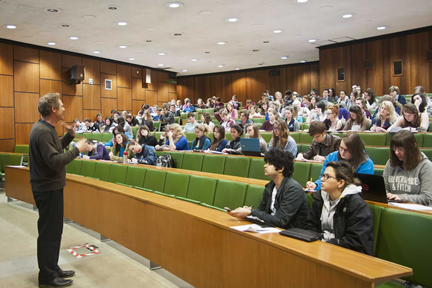-
Deaf & Hard of Hearing
Since deaf students are often on their own, the learning experience can often be isolating, confusing and difficult.
-
Blindness
If writing on a whiteboard, read out as much of what you are writing as feasible and practical.
-
Mental Health
Some students are reluctant to inform teachers about their mental health condition unless they have to.
-
Dyslexia
Linking concepts with analogies or experiences are often highly effective with dyslexic students.
-
Multiple Sclerosis
If a student is in a wheel chair or with a walking aid, clear the room from the doorway so they can get through.
-
Mobility Difficulties
Many low floor trams go to University of Melbourne. The stop is right in front of the Sidney Myer Asia Centre.
-
Acquired Brain Injury
Working in group activities with other students can be daunting and/or intimidating.
-
Anxiety
I am affected the most during exam period. I start getting nervous from the date exam timetables are released.
-
Migraine
In the classroom sometimes I can't read the presentation slides properly if they have a white or bright background.
-
Cerebral Palsy
Melbourne Uni has a massive campus. Try to keep lectures and tutorials within their allotted time slots to allow time to get between venues.
-
Low Vision
Don’t expect that we will be able to read content at a distance.
-
Hearing Loops Demystified
Using a hearing induction loop is super convenient! There is no additional equipment that you need apart from your hearing aids and the built in telecoil.
